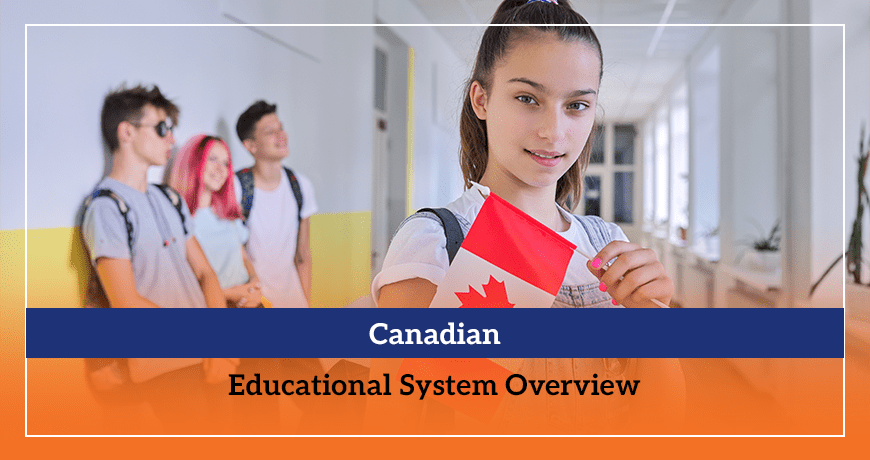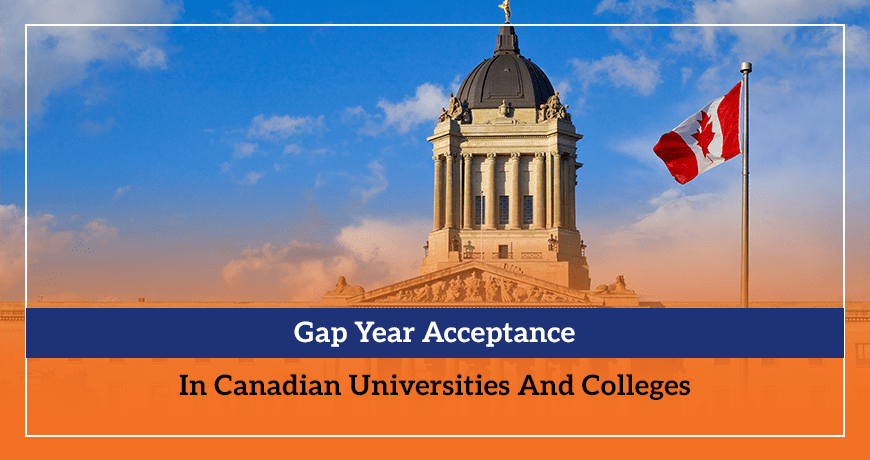

Dr Mohammad Shafiq
Ever wonder why so many students choose Canada for higher study? Thanks to its welcoming culture, world-class universities, and policy to accept students with gap years, Canada is now one of the most popular higher study destinations for international students. But it’s essential to understand how much gap is accepted for study in Canada. Keep reading, and I'll discuss the point.
A study gap occurs when a student pauses their academic pursuits after completing their last qualification. They might prepare for entrance exams, engage in internships, or gain work experience during this time. It's a period for personal and professional development beyond traditional education.
A gap year is a period when students take a break from formal education. Many students take gap years in their academic life, especially before and during higher studies. There can be various reasons students might want to take a gap between completing a degree and starting a new one.
Some of the most common reasons for a gap year in Canada include the following:
Taking a year gap has many benefits for students in terms of personal and academic growth. Here are the most common ones:

Canada has a world-class education system that constantly ranks high among the countries. Its highly decentralized system has separate education ministries and curricula in each province and territory.
However, some common characteristics across the system make it comprehensive. For example, schooling is compulsory from 6 to 16 in all the provinces. Each province sets its curriculum with subjects in English, Math, Science, History, and Geography.
Students are assessed through various tests, assignments, and projects throughout the year. After completing secondary school, students can opt for college, university, or trade school.
Canada’s education system is divided into three levels: Elementary, Secondary, and Post-secondary. A lot of provinces also have a two-year kindergarten program.
Admission requirements for international students in Canada can vary depending on which university or college you are applying to, what course you are choosing, and your program. Here are the common requirements for international students:
Yes, study gaps are generally acceptable in Canada for international students. However, it's essential to provide valid reasons for the gap, such as gaining work experience, pursuing internships, or personal development activities. Clear explanations can strengthen visa applications and admission prospects.

To study in Canada, the standard accepted gap is 2 years for undergraduate and 5 years for postgraduate programs. The length of time doesn't affect eligibility for a Canadian study visa, whether it's been 7, 10, or even 25 years since the last academic pursuit. The acceptable amount of time for gap years varies from institution to institution.
Some universities in Canada have clear and specific acceptable gap year policies for international students. Others are more flexible in accepting longer gap years and consider applicants case by case. That's why you must check the specifics of gap year policies before applying to a university or college.
Most Canadian universities and colleges allow international students to get admission with gap years. Here are some examples of universities or colleges known for accepting gap years:
These universities have flexible policies towards the time considered gap years. But they might have some specific requirements. So, it’s ideal for you to check with the university’s admission office before applying.
Sometimes universities or colleges in Canada might ask students the reasons for gap years between studies. Based on these reasons, the universities or colleges may determine whether or not you will get admission.
Here are some factors that can influence gap year acceptance:

Your chosen university or college in Canada will ask for various supporting documents with your application form. These documents will corroborate the information you provide in the application form and strengthen your application.
Check Also:
Your chances of admission to a university or college with gap years hugely depend on how strong an application you submit. Here are some important tips for making a powerful application:
Yes, Canadian universities and colleges accept international students with gap years. In fact, many universities and colleges in Canada are open for international students with gap years.
It depends on the admission policies of the universities or colleges. Some have stringent gap year policies, while others are flexible. But generally, students with a 2-year gap in undergraduate and a 5-year gap in postgraduate are accepted.
Taking a gap year usually won't affect your chances of getting a study permit in Canada. But you may have to explain why you take gap years in your admission application.
A study gap of up to 2-3 years after 12th grade is generally acceptable for undergraduate programs.
Yes, you can. It doesn't matter if you are applying for a Canada study visa after 7 years, 10 years, or even 25 years. You'll need to provide valid reasons and explanations for the gap
To justify a study gap for college or university, explain any productive activities during the gap, such as work experience, volunteering, internships, skill development courses, or personal reasons like health issues or family responsibilities.
To cover a gap for a study visa in Canada, provide valid reasons such as work experience, internships, skill development courses, or personal circumstances. For colleges and universities, include documentation and a clear explanation in your Statement of Purpose to demonstrate continuous learning or relevant activities during the gap period.
Many universities or colleges in Canada may want to look into what activities you have undertaken during your gap years. In that case, you might have to show proof of your activities and achievements.
Yes, you can work and earn money during your gap years in Canada. But there are certain restrictions on how much you can work and what type of job you can take. You should talk to your university's admission office to clear up any confusion.
Knowing how much gap is accepted for study in Canada is an essential first step in resuming your higher study after a break. Taking a gap year can be a great way to understand what you want in life, learn new skills, and gain valuable experiences. But seek help from student consultants when needed to make an informed decision for choosing the most suitable university in Canada.

November 19 2024

November 17 2024

November 13 2024
Author: Dr Mohammad Shafiq
Business Study is undoubtedly a popular subject worldwide. Studying it in the UK makes it even better. The UK’s business schools have always had... Read More
Author: Dr Mohammad Shafiq
Thinking about doing an MS in the USA? It’s a popular choice for students worldwide. The country is home to some of the best institutes worldwid... Read More
Author: Dr Mohammad Shafiq
Are you an international student or professional eyeing a permanent residency (PR) visa in New Zealand? If so, choosing the right course can significa... Read More